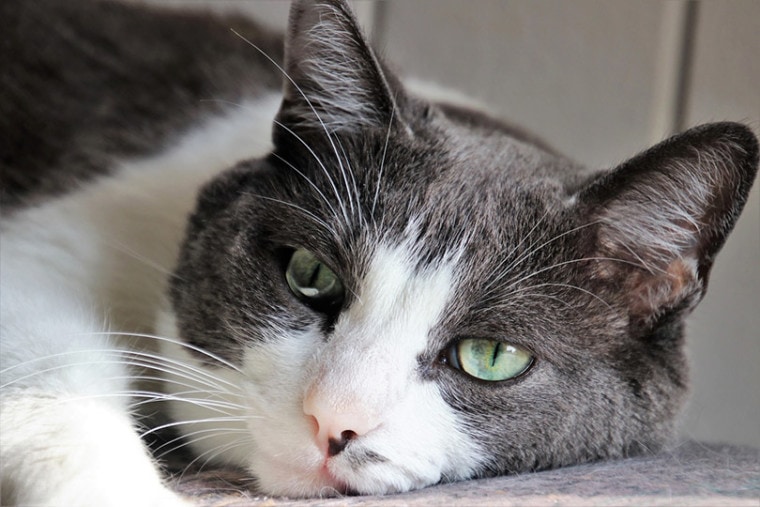
Every cat owner knows the potential dangers of their cat swallowing a foreign object. Even though cats are fussier than dogs with what they eat, cats are curious by nature, and love to play with all sorts of things. Some of the most common foreign objects they swallow include strings and thread, rubber bands, plant material and small toys. Some cats are more curious than others, and if your feline investigates anything and everything, it’s wise to know what signs they may show if they have swallowed something they shouldn’t.
In this post, we’ll discuss four possible treatment options if your cat swallows a foreign object. We should note that if your cat has swallowed something they shouldn’t have, contact your veterinarian immediately. Without further ado, let’s check out treatment options your veterinarian may administer.
The 4 Treatment Options for if Your Cat Swallows a Foreign Object
1. Induce Vomiting
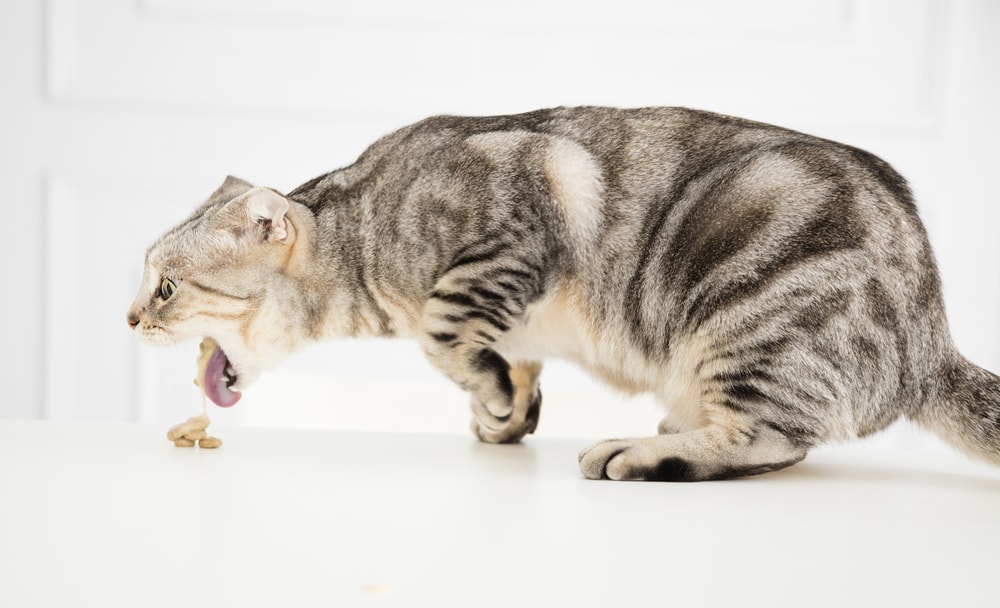
Depending on what object has been swallowed and when – your vet may decide that inducing vomiting is the best course of action. This will not always be a suitable option. For example if the object is sharp like a needle it will cause more damage to the esophagus on the way back up.
Please note- although it may seem like a good idea to take action immediately and try and get the object out as rapidly as possible, you must consult your vet. Inducing vomiting at home can be dangerous and should always be done by your vet, usually by using injectable medications. Hydrogen peroxide, which is sometimes used to induce vomiting in dogs at home, should not be given to cats. It causes irritation of the esophagus and stomach.
2. Wait It Out
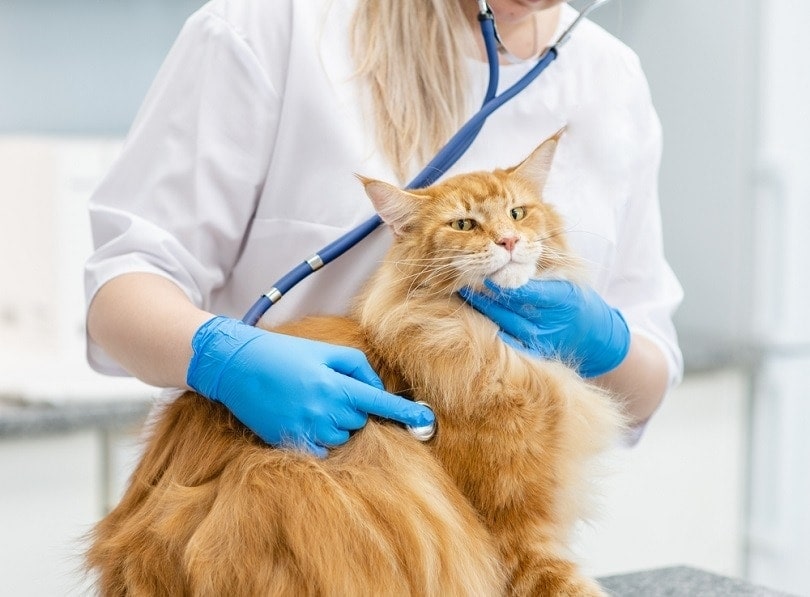
If the object is small and soft or smooth, your vet may discuss a ‘wait and see’ approach with you. Vets will assess all the details you have given them and examine your cat. They may do other investigations such as taking X-rays. Objects will usually take 2-5 days to pass through the digestive system ( although this can be very variable) and you will need to carefully monitor your cat during this time.
3. Extraction Using an Endoscope

If the foreign object is in the esophagus or stomach your vet may remove it using an endoscope. An endoscope is a flexible tube with an attached camera which is guided down your cat’s esophagus under general anesthetic. Once spotted, the instrument can grab the foreign object by way of a small metal “grabber” that allows the object to be lifted up and out. If the object is too tightly wedged or too sharp to pull back up, then the vet will likely opt for surgical removal.
4. Surgery
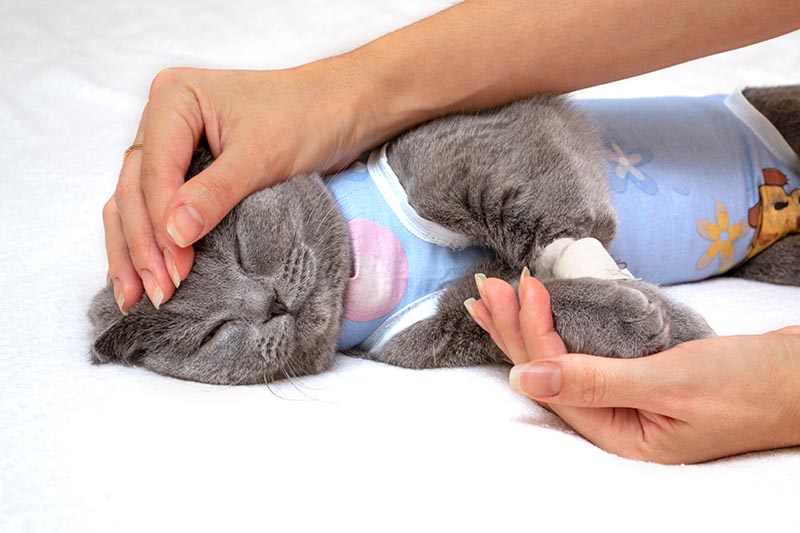
Surgical removal is the only suitable option to remove some foreign objects. This will be done under general anesthetic.
X-rays will be performed beforehand to determine where the object is lodged. Your cat will be under general anesthesia, and most times, blood work is performed first to help assess your cat’s general health. The veterinary surgeon will make an incision into the abdomen and fully assess the abdominal organs. Once the exact location of the foreign object is determined, careful incisions are made into the stomach/intestine to remove it. Your veterinarian will discuss any risks involved and will explain how the surgery will be performed and the post operative recovery period.
How Will I Know My Cat Swallowed a Foreign Object?
The signs that your cat may show after ingesting a foreign object are very variable and depend on the object, location and how long it has been there. Some signs your cat may show include:
If you notice any of these signs, call your veterinarian right away.
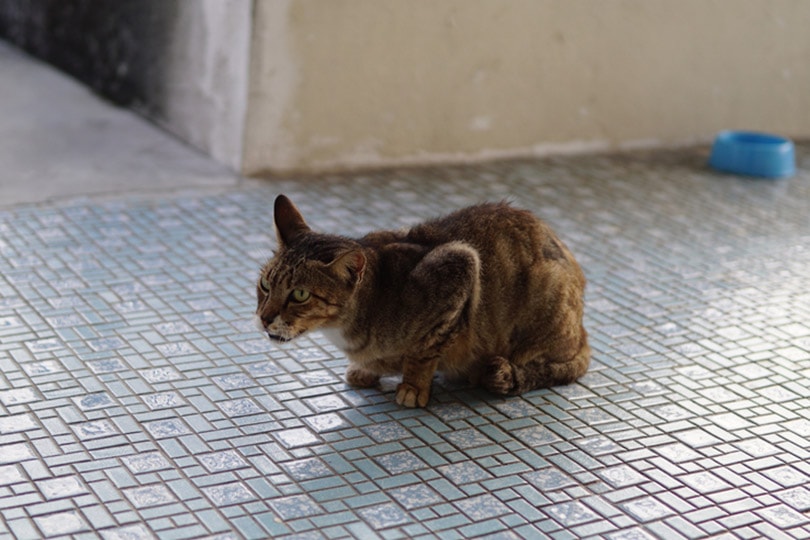
Tips for Preventing Your Cat From Ingesting Foreign Objects
Preventing ingestion of foreign objects is ideal, and you can do your part to reduce the chances of it happening. Strings and needles are among the most common objects extracted from cats. Ensure you keep these items out of reach, along with other hazardous things that cats like to play with, like rubber bands,hair bands, blind cords, tinsel, and ribbons.
If you suspect your cat has swallowed a foreign object, observe your cat and watch for the clinical signs mentioned above. If you know your cat swallowed something she shouldn’t have, contact your veterinarian ASAP.
- Related Read: My Cat Ate a Rubber Band
 Final Thoughts
Final Thoughts
It can be scary if your cat swallows a foreign object, and it does happen. Keeping potentially hazardous objects out of reach goes a long way in keeping your cat safe, and knowing the signs of foreign object obstruction will help you determine that there is a problem in the first place. It’s always best to contact your vet as soon as possible. Veterinary advice and treatment will give your cat the best chance of a successful outcome.
Featured Image Credit: pasja1000, Pixabay







